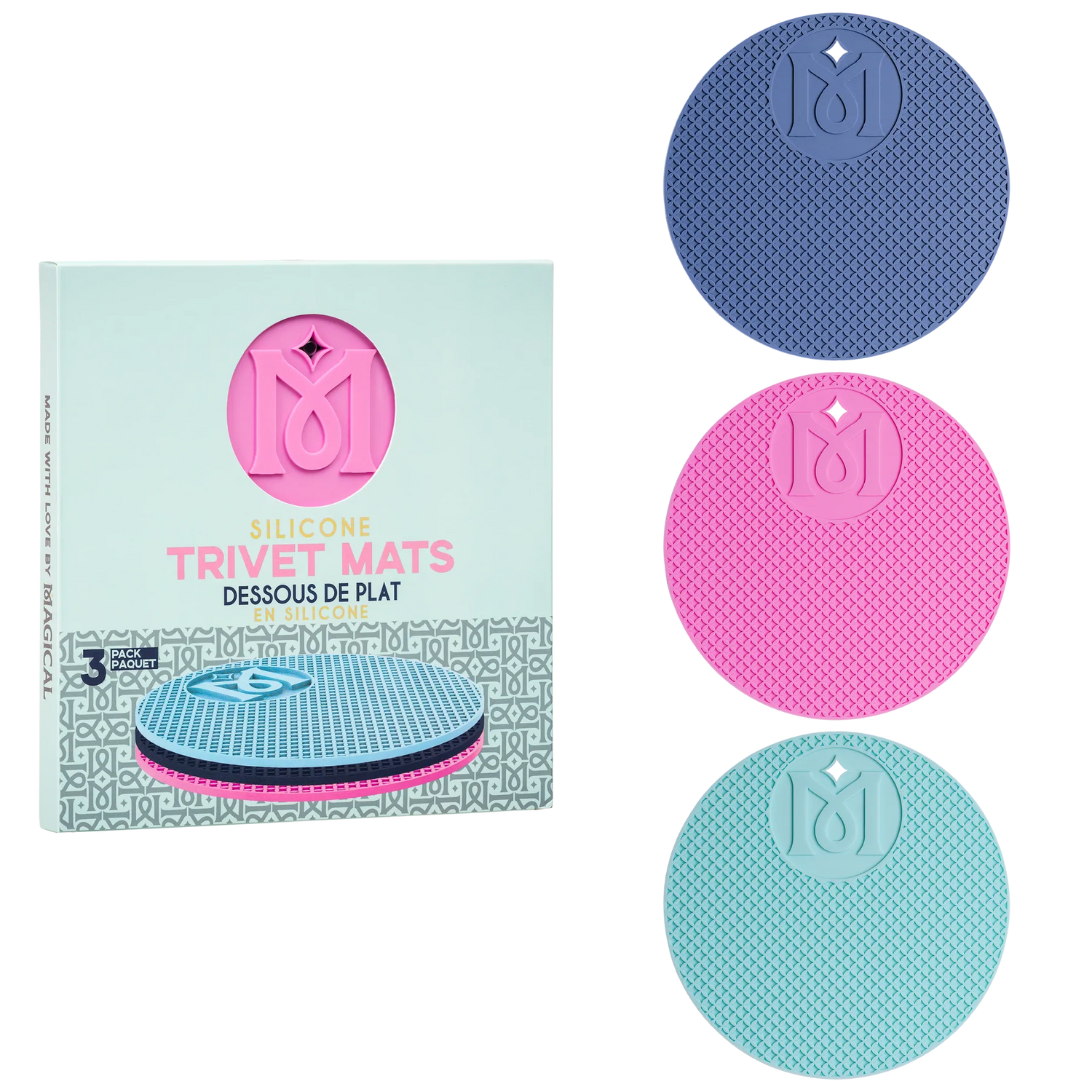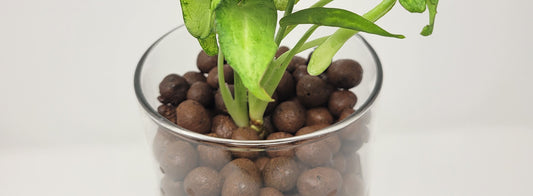One of the first questions everyone asks when learning hydroponics is, “But, how do you keep your plants in place without soil?” Maybe you’ve heard the words “soilless growing media” and found yourself even more confused. Well luckily, it’s a lot less complicated than it sounds.
Soilless Grow Media
Soilless Growing Media refers to a group of materials that provide support and adequate aeration to a plants roots, without the use of organic matter found in soil. Every medium has different properties that make it suitable for different types of hydroponics, and every grower has their own preference as well.
Clay Pebbles

Also known as LECA (lightweight expanded clay aggregate), or Hydroton, it’s made by heating unprocessed clay pieces until gasses trapped inside the clay expand. This results in a lightweight, porous, but sturdy material that is inert and pH neutral. Clay pebbles can be cleaned and reused almost endlessly making them a cheaper option in the long term. Seedlings or cuttings are typically transplanted into LECA once they have established roots, so a separate propagation medium may be required.
Perlite

Perlite is a lightweight mineral that is crushed, dried, and heated in a furnace until it expands. Typically a course grade perlite like #4 is used, because it’s less likely to fall through net cups or pots, and clog pumps. Perlite is pH neutral, but it does contain minerals such as iron, sodium, calcium, and other trace elements that can interact with your nutrient solution. It can be cleaned and reused, so it is an economical choice, but will typically require a separate propagation medium.
Coco Coir

Coco coir is the shredded outer husk leftover from coconut processing. It usually comes in chips or fibers, and can be purchased either in a loose, bagged form, or a compressed block. It has a composition similar to soil, which soaks up nutrient solution, but also supplies adequate aeration to the roots. The small fibers can come loose from pots and clog pumps and irrigation, so its use is best suited for filtered or non-circulating systems, and propagation trays. Coco coir is pH neutral, but because it is an organic material it will breakdown over time, and can only be used once or twice before it should be composted. Coconut processing typically uses saltwater, so be sure to look for brands like Organic Mechanics that are washed and buffered.
Rockwool

Also known as stonewool, rockwool is made by superheating volcanic rock to about 3000℉, then spinning it like cotton candy. The result is a semi-fragile, fiberglass-like material that should be handled with care (and gloves). Unlike most other media, Rockwool has a high pH around 8.0 and needs to be soaked in an acidic solution (water and a few drops of pH down) for a few hours before use. One upside to rockwool is that the entire growth cycle from seed to harvest can take place in the same medium. But as the plants’ roots grow through the block, it begins to crumble, meaning it can only be used once. Rockwool is less sustainable, has potential health concerns, and is more expensive long-term than some of the other options.
Cloning Collars

While neoprene cloning collars were originally designed to be inserted in cloning machines, they fit nicely in a net cup, and expand (to a certain amount) as the plant grows. They are pH neutral and can usually be reused multiple times before they need to be replaced. One drawback is that they have a limited size range, and won’t fit bucket-lid net pots. Large or heavy plants will also need additional support such as trellis netting.
This is by no means an exhaustive list, and some growers use one media to begin their grow, and switch to another once their plants are rooted. Some prefer to use a combination of media in order to get the best effects of both, like 70:30 ratio of coco coir to perlite. When choosing a media that will work for you, keep in mind your goals, type of system, and budget.
Growing is a journey, and we would love to help you on yours. Comment below, contact us here, or stop by Taproot Hydroponics and we’ll be happy to answer any questions you might have.





